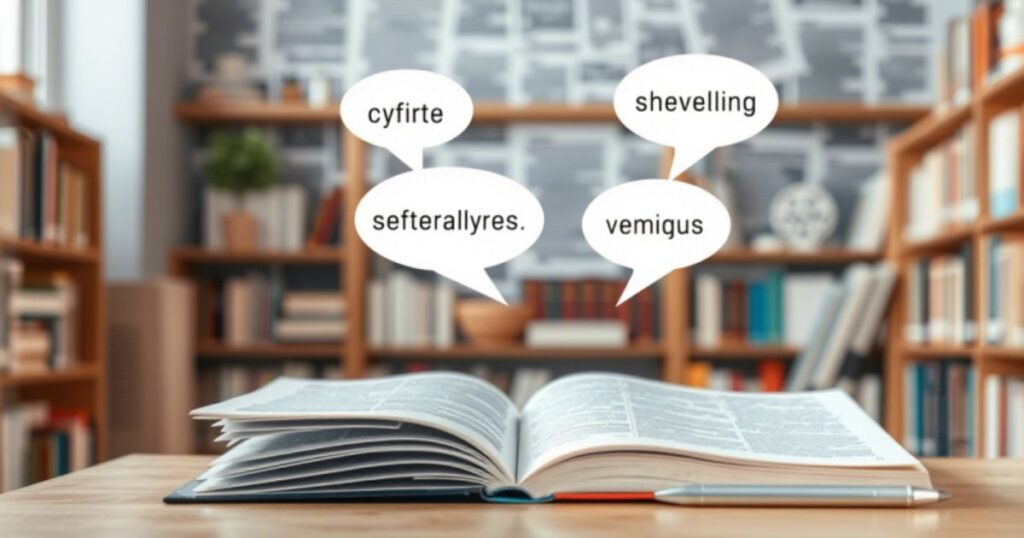Looking for Other Ways to Say Please Be Advised? You’re in the right place! This phrase is often used in formal emails, notices, and announcements. But sometimes, it sounds a bit stiff or overused. That’s why exploring Other Ways to Say Please Be Advised helps you sound more natural and professional. Whether you’re writing to clients, coworkers, or customers, knowing what does please be advised mean and when to use it makes your message more effective.
In this guide, we’ll cover please be advised meaning, along with please be advised synonym options to keep your tone fresh. If you’ve ever wondered, another way to say please be advised without sounding too formal or cold, we’ve got you covered. By learning Other Ways to Say Please Be Advised, you’ll communicate more clearly and confidently. So let’s explore these phrases and understand what does please be advised mean in different contexts.
What Does Please Be Advised Mean?
The phrase please be advised is often used to introduce important or cautionary information. It’s a formal way to alert someone to facts or changes. In many professional settings, using Other Ways to Say Please Be Advised can keep your tone clear yet less stiff. It simply means “take note” or “be aware.”
When to Use Please Be Advised
You can use please be advised in emails, notices, policies, or warnings. It’s helpful when sharing critical details that need attention. Still, depending on the context, using Other Ways to Say Please Be Advised can make your message sound warmer or more reader-friendly. It’s best for formal updates or alerts in workplace settings.
Is It Professional or Polite to Say Please Be Advised?
Yes, it’s both professional and polite, especially in business writing or legal communication. However, it can feel too formal in everyday messages. Using Other Ways to Say Please Be Advised adds variety and a more conversational tone while maintaining professionalism. It shows respect without sounding too distant or robotic.
Please Be Advised Synonym:
1. Be Aware That
2. Keep in Mind
3. Just a Heads Up
4. Please Note
5. For Your Awareness
6. This Is to Inform You
7. Kindly Be Informed
8. Allow Me to Remind You
9. You May Wish to Note
10. Just So You’re Aware
11. Take into Account
12. Let Me Bring to Your Attention
13. Make a Note That
14. We’d Like to Let You Know
15. As a Quick Reminder
16. Here’s an FYI
17. You Might Want to Know
18. This is to Remind You
19. Please Keep in Mind
20. As a Friendly Reminder
21. Important Notice
22. We Want to Inform You That
23. For Your Information
24. Please Bear in Mind
25. In Case You Missed It
26. Here’s a Quick Update
27. Just a Friendly Heads Up
28. We’d Like You to Know
29. As Noted Previously
30. Don’t Forget That
Understanding “Please Be Advised” & Its Meaning
The phrase “please be advised” is a formal way to draw attention to important information. It’s commonly used in emails, warnings, or official documents. While polite, it may sound stiff or overly formal in casual messages. That’s why many writers prefer using Other Ways to Say Please Be Advised for a more natural tone.
Synonyms & Alternatives for “Please Be Advised”

You can use Other Ways to Say Please Be Advised like kindly note, be aware, or just note that, these sound friendlier and less formal.
Formal Synonyms for “Please Be Advised”
- Kindly be informed
- You are hereby notified
- This is to inform you
- It is important to note
- Please take note
- Be it known that
- We wish to inform you
Professional Email Alternatives for “Please Be Advised”
- For your information
- Please be aware
- I’d like to bring to your attention
- Kindly note the following
- Just a quick update regarding…
- You should be aware that
- This is to notify you
Polite & Softer Ways to Say “Please Be Advised”
- Just so you know
- I wanted to let you know
- You might want to be aware
- Thought I’d share this with you
- A quick heads-up
- In case you weren’t aware
- I hope it helps to know
Read Also: 35 Other Ways to Say “The Author States” (With Examples)
More Direct Alternatives for “Please Be Advised”

- Here’s what you need to know
- Important update:
- Note this carefully
- Be aware of the following
- This is crucial information
- Take note of this
- You must know this
Examples of “Please Be Advised” in Use
- Please be advised that your account will be deactivated after thirty days of inactivity.
- Please be advised our office will remain closed on Friday due to maintenance work.
- Please be advised that the meeting has been rescheduled to Thursday at 3:00 PM.
- Please be advised your insurance policy will expire unless renewed before the due date.
- Please be advised we are currently experiencing delays due to high call volume today.
- Please be advised that all employees must complete the safety training by next Monday.
- Please be advised the terms and conditions have been updated in your user agreement.
1. Be Aware That
Meaning: A prompt to keep the information in mind or be conscious of it.
Tone: Direct, informative.
Example: “Be aware that the meeting has been rescheduled to 3 PM.”
Definition: “Be aware” is a gentle way to bring something to someone’s attention without sounding too formal.
Explanation: This phrase is suitable when you need someone to acknowledge or note information clearly.
2. Keep in Mind
Meaning: A reminder to not forget a specific detail or fact.
Tone: Friendly, helpful.
Example: “Keep in mind that the deadline is earlier this month.”
Definition: This phrase serves as a nudge to consider something while planning or deciding.
Explanation: Best used in informal to semi-formal contexts when you want the recipient to remember something important.
3. Just a Heads Up
Meaning: An informal alert to upcoming or potential changes or news.
Tone: Casual, conversational.
Example: “Just a heads up, the client may join the meeting today.”
Definition: A way to warn or inform someone in advance without sounding too official.
Explanation: Ideal for workplace chats or emails when you want to give someone a quick notice.
4. Please Note
Meaning: A formal request to pay attention to something specific.
Tone: Polite, professional.
Example: “Please note that the system will be down for maintenance this weekend.”
Definition: “Please note” is used to direct someone’s attention to crucial information.
Explanation: Commonly used in emails, memos, and formal communications to emphasize details.
5. For Your Awareness
Meaning: Shared information that might be relevant or helpful to know.
Tone: Neutral, professional.
Example: “For your awareness, the pricing policy has been updated.”
Definition: A subtle way to make someone conscious of something without requesting action.
Explanation: Often used in corporate or formal settings to circulate general updates.
6. This Is to Inform You
Meaning: A formal introduction to important or official news.
Tone: Official, straightforward.
Example: “This is to inform you that your leave has been approved.”
Definition: Clearly signals that the message contains necessary or formal information.
Explanation: Used in HR letters, policies, or announcements where authority and clarity are essential.
7. Kindly Be Informed
Meaning: A polite phrase to deliver facts or decisions.
Tone: Respectful, courteous.
Example: “Kindly be informed that your request has been processed.”
Definition: A softened version of “this is to inform you,” often used in professional contexts.
Explanation: Helps maintain a respectful tone in formal or semi-formal communications, especially in service or business correspondence.
8. Allow Me to Remind You
Meaning: A gentle way to restate previously shared information or expectations.
Tone: Polite, thoughtful.
Example: “Allow me to remind you that your report is due tomorrow.”
Definition: Used when following up without sounding accusatory or demanding.
Explanation: Effective in maintaining professionalism while prompting someone to recall something.
9. You May Wish to Note
Meaning: A suggestion to pay attention to a detail that might be helpful.
Tone: Subtle, diplomatic.
Example: “You may wish to note that the policy has recently changed.”
Definition: This phrase implies importance while giving the reader autonomy to act.
Explanation: Works well when advising or hinting at useful information without sounding forceful.
10. Just So You’re Aware
Meaning: A casual way to make sure someone knows something relevant.
Tone: Friendly, informal.
Example: “Just so you’re aware, the client is sensitive about delays.”
Definition: Meant to inform someone gently so they aren’t caught off guard.
Explanation: Good for informal settings or casual emails when giving a friendly heads-up.
11. Take into Account
Meaning: Encourages someone to consider or factor in specific information.
Tone: Thoughtful, neutral.
Example: “Take into account the extra time needed for traffic.”
Definition: This phrase implies that the listener should factor in relevant details while making decisions.
Explanation: Great for planning discussions or when pointing out things that could impact outcomes.
12. Let Me Bring to Your Attention
Meaning: Calls focus to an important detail or issue.
Tone: Formal, attentive.
Example: “Let me bring to your attention an error in the budget report.”
Definition: A professional way to highlight something that might otherwise be overlooked.
Explanation: Useful in formal communication when you need to emphasize issues or changes tactfully.
13. Make a Note That
Meaning: Tells someone to remember or write something down.
Tone: Direct, slightly informal.
Example: “Make a note that the office will be closed on Friday.”
Definition: A casual yet clear way of urging someone to remember specific details.
Explanation: Works well in both spoken and written instructions, particularly in reminders or updates.
14. We’d Like to Let You Know
Meaning: Announces information in a polite, inclusive tone.
Tone: Friendly, professional.
Example: “We’d like to let you know that your application was successful.”
Definition: A soft, people-focused way to share news, often used in customer or team communication.
Explanation: Suitable for emails or messages that share positive updates or important decisions.
15. As a Quick Reminder
Meaning: A light way to prompt someone about something they’ve already been told.
Tone: Casual, polite.
Example: “As a quick reminder, the event starts at 10 AM tomorrow.”
Definition: Used to gently reintroduce information that may have slipped someone’s mind.
Explanation: Ideal for follow-up messages and informal reminders without sounding pushy.
16. Here’s an FYI
Meaning: An abbreviation of “For Your Information,” sharing a detail casually.
Tone: Brief, informal.
Example: “Here’s an FYI, the file has been moved to the shared folder.”
Definition: A relaxed way to offer useful or relevant information, often without requiring a response.
Explanation: Best for internal communication or informal updates within a team or group.
17. You Might Want to Know
Meaning: Suggests that the information could be useful or relevant.
Tone: Friendly, suggestive.
Example: “You might want to know that the meeting room has changed.”
Definition: Offers helpful insight while giving the listener the option to act on it.
Explanation: Great for softening messages and avoiding pressure while still being informative.
18. This Is to Remind You
Meaning: A formal phrase for recalling something already communicated.
Tone: Professional, direct.
Example: “This is to remind you of your upcoming payment deadline.”
Definition: Reinforces earlier messages or expectations, especially in structured or recurring communication.
Explanation: Common in business or customer service to stay clear while maintaining formality.
19. Please Keep in Mind
Meaning: Politely asks someone to remember or consider something important.
Tone: Respectful, professional.
Example: “Please keep in mind that this offer expires in 48 hours.”
Definition: A courteous way to emphasize a condition, detail, or limitation.
Explanation: Effective for emails, presentations, and warnings without sounding overly firm or commanding.
20. As a Friendly Reminder

Meaning: A soft, kind prompt to recall something that’s been said before.
Tone: Warm, casual.
Example: “As a friendly reminder, your appointment is tomorrow at 2 PM.”
Definition: Combines politeness with helpfulness, making it ideal for reminders that keep things light.
Explanation: Often used in customer service, scheduling, or follow-ups where tone matters.
21. Important Notice
Meaning: A formal alert about something significant or urgent.
Tone: Official, serious.
Example: “Important notice: The water supply will be interrupted tomorrow.”
Definition: Used to grab attention quickly and ensure the information is read or acted on.
Explanation: Ideal for announcements, warnings, or urgent changes in business or public communication.
22. We Want to Inform You That
Meaning: A formal way to deliver news or important updates.
Tone: Professional, informative.
Example: “We want to inform you that the policy has been revised.”
Definition: Signals a clear intent to convey valuable or necessary information to the recipient.
Explanation: Best used in emails, notices, or letters when clarity and politeness are required.
23. For Your Information
Meaning: Shares a detail that may be helpful or relevant.
Tone: Neutral, slightly formal.
Example: “For your information, the report is already submitted to the manager.”
Definition: Indicates the message is meant to keep someone in the loop, not necessarily requiring action.
Explanation: Common in both business and casual communication for sharing general updates.
24. Please Bear in Mind
Meaning: A courteous way of asking someone to remember or consider something.
Tone: Gentle, polite.
Example: “Please bear in mind that processing may take 3–5 business days.”
Definition: A friendly phrase often used to prepare someone for conditions or limitations.
Explanation: Useful when setting expectations or reminding others of important facts without being forceful.
25. In Case You Missed It
Meaning: Highlights information that might have been overlooked.
Tone: Casual, conversational.
Example: “In case you missed it, the presentation is now available online.”
Definition: Used to recap or call attention to something previously mentioned or shared.
Explanation: Great for newsletters, social media, or friendly reminders in emails.
26. Here’s a Quick Update
Meaning: Shares a brief change or progress on something.
Tone: Informal, direct.
Example: “Here’s a quick update: the launch date has been postponed.”
Definition: Signals that the message contains a brief, important status change or development.
Explanation: Perfect for keeping stakeholders or teammates in the loop in a clear, non-overwhelming way.
27. Just a Friendly Heads Up
Meaning: A light warning or advance notice.
Tone: Casual, warm.
Example: “Just a friendly heads up, there’s roadwork near the office tomorrow.”
Definition: A softer version of “heads up,” ideal for giving others time to prepare.
Explanation: Works well when offering informal warnings or making someone aware of minor issues.
28. We’d Like You to Know
Meaning: A polite way to present relevant information.
Tone: Respectful, customer-friendly.
Example: “We’d like you to know that your order has been shipped.”
Definition: Shares updates while maintaining a professional and considerate tone.
Explanation: Common in customer service, business emails, or any message where a caring tone is important.
29. As Noted Previously
Meaning: References something that was already mentioned or shared earlier.
Tone: Formal, matter-of-fact.
Example: “As noted previously, all reports must be submitted by Friday.”
Definition: Reinforces past communication to reduce redundancy or confusion.
Explanation: Useful when reminding others without repeating entire instructions or details.
30. Don’t Forget That
Meaning: A simple reminder to help someone remember something important.
Tone: Friendly, casual.
Example: “Don’t forget that the event starts at 6 PM sharp.”
Definition: Encourages memory retention in a conversational and direct manner.
Explanation: Ideal for casual reminders or personal communication where a relaxed tone fits best.
FAQ’s
How can I sound more polite in formal emails?
Using Other Ways to Say Please Be Advised helps you sound respectful while keeping the tone soft and professional. It makes your message more approachable.
What’s a less formal way to give someone important information?
Try using Other Ways to Say Please Be Advised to avoid sounding too official. These softer alternatives feel more natural in everyday communication.
How do I stay clear without being too harsh in writing?
Other Ways to Say Please Be Advised help you communicate clearly while keeping the tone polite. It shows you care about how your message is received.
Can I replace formal phrases in business writing?
Yes, using Other Ways to Say Please Be Advised can improve readability and tone. It makes business communication smoother and more reader-friendly.
What should I say instead in casual conversations?
Use Other Ways to Say Please Be Advised to keep your language simple and natural. These phrases work well even in relaxed or informal situations.
Conclusion
Now you know several Other Ways to Say Please Be Advised that sound natural and professional. Whether you’re writing emails or formal letters, choosing the right words makes a big difference. Understanding the please be advised meaning helps you use it correctly. If you ever feel like the phrase is too formal, try a please be advised synonym for a more relaxed tone. You don’t always need to ask, what does please be advised mean, once you explore clearer phrases.
In short, there’s always another way to say please be advised depending on your audience. From business notes to friendly reminders, you now have options to keep your message polite and effective. Using Other Ways to Say Please Be Advised shows that you’re thoughtful with your communication. Whether you stick with please be advised or mix it up, remember that the key is clarity. So next time, think of a better phrase, because now you know them all!

